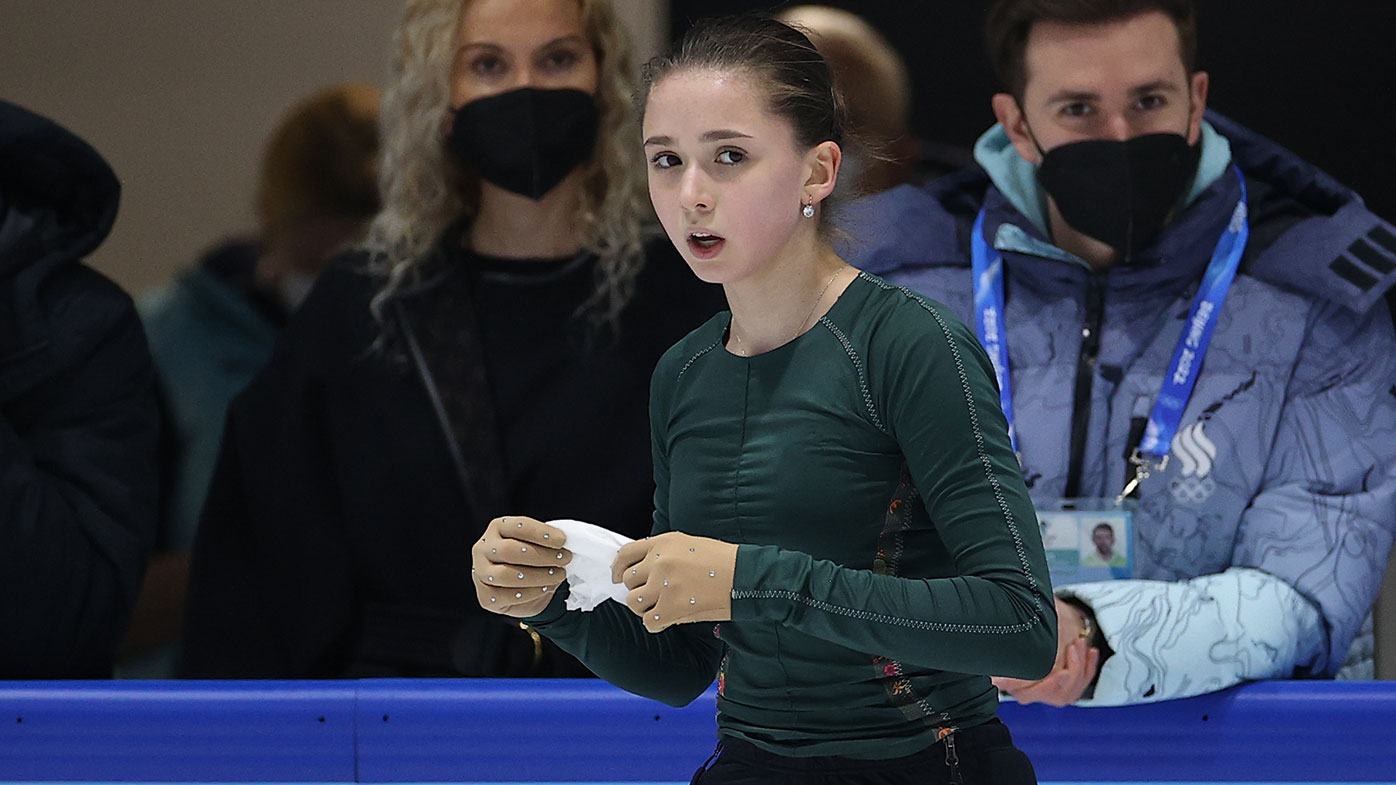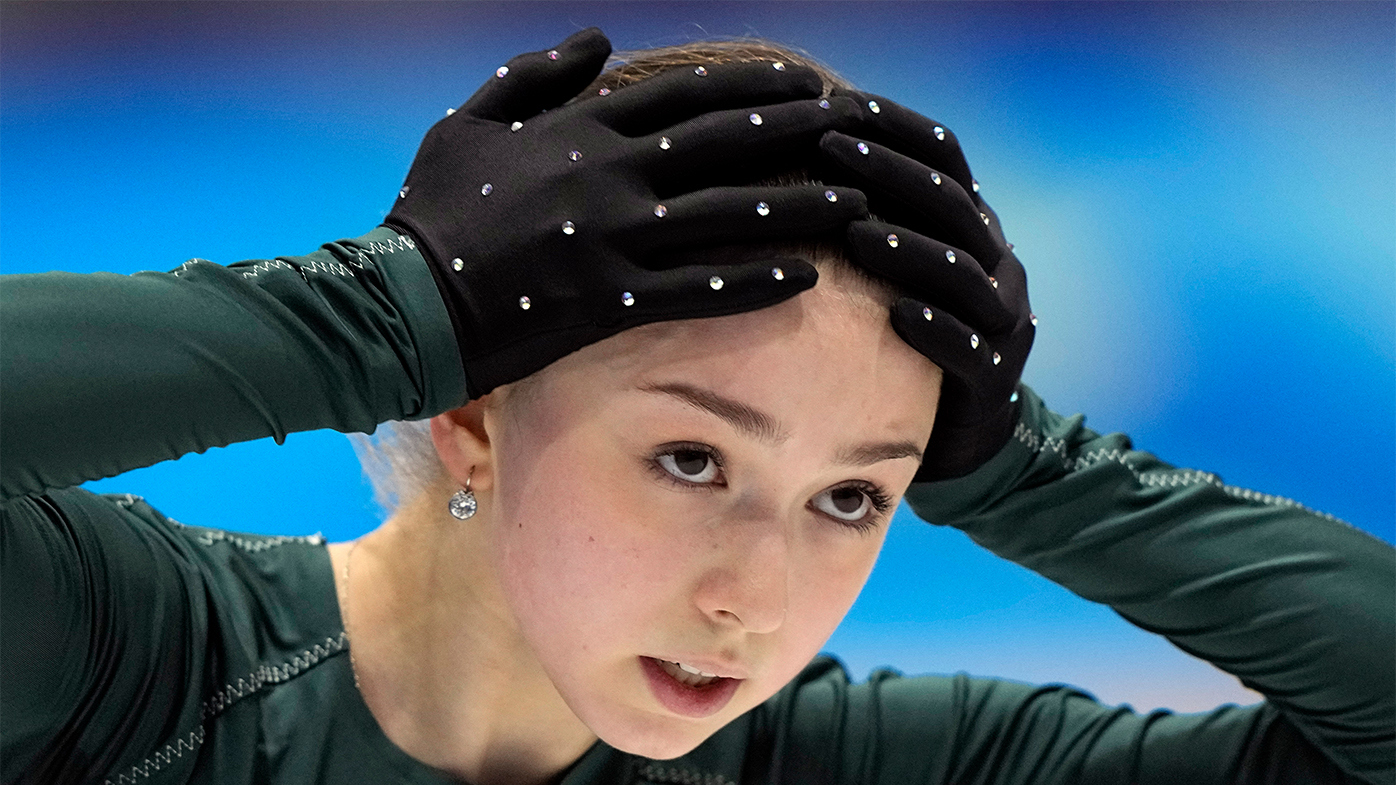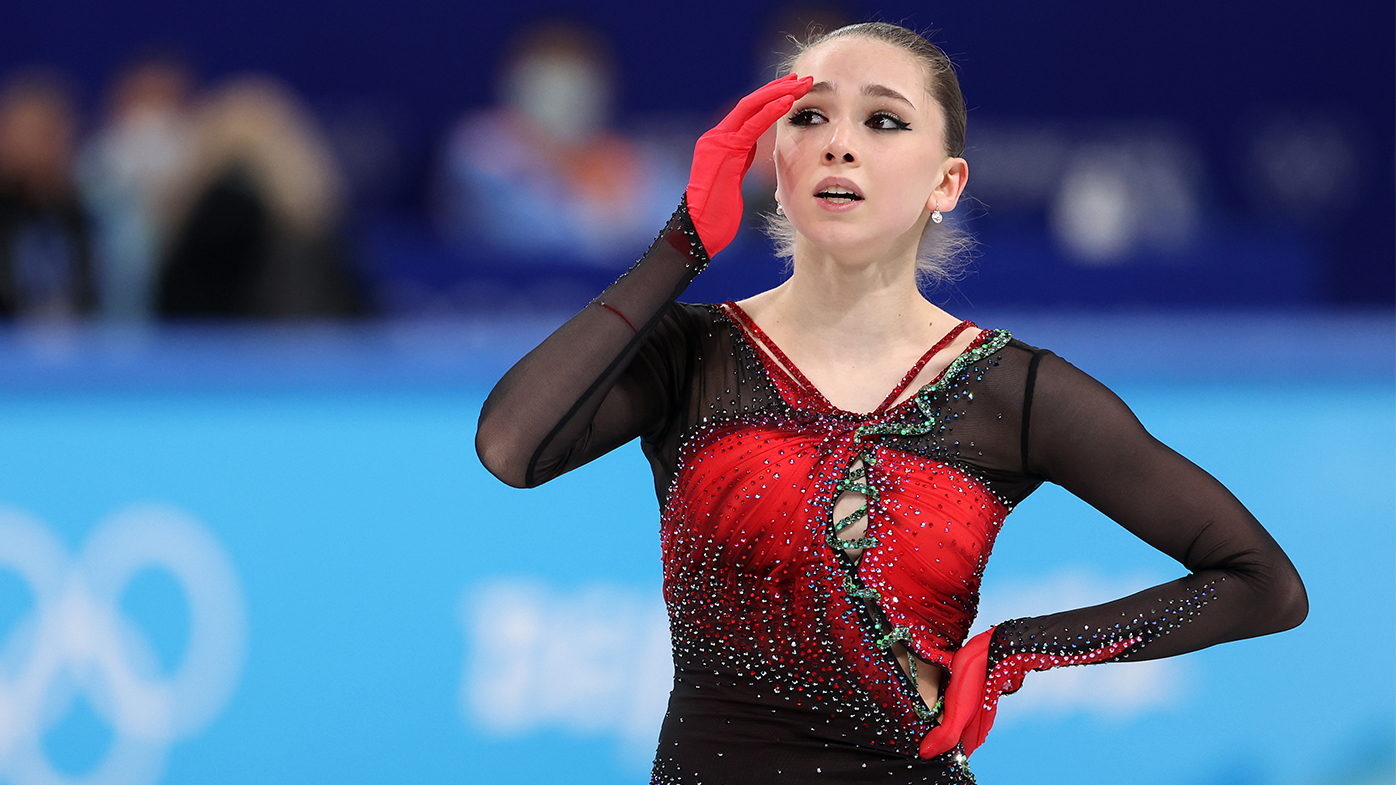A drugs test controversy that has overshadowed Beijing 2022 is set to rumble on after the Winter Olympics finishes.
For now, teenage figure skater Kamila Valieva has won a temporary reprieve – the 15-year-old gets to compete in the women’s single skating competition today.
But, if she wins this week, there will be no gold medal ceremony or bouquet of flowers to hold and when she heads back to Russia, Valieva will enter a bureaucratic limbo as different sporting and doping organisations contest the implications of the skater’s positive test for the banned heart drug trimetazidine, which is commonly used to treat people with angina.
LIVE UPDATES: Day 11 of the Beijing Winter Olympics
READ MORE: Officials investigate ugly NRL All Stars disgrace
READ MORE: ‘Rattled’ Steve Smith in race against time after concussion
Yesterday, the Court of Arbitration for Sport (CAS) ruled that Valieva could compete for the remainder of this year’s Winter Games, despite testing positive for a prohibited substance ahead of Beijing 2022.
The Valieva controversy has reignited doubts about the Olympic movement’s handling of Russian athletes competing at successive Games, but also the oversight of the World Anti-Doping Agency (WADA) and its working relationship with the Russian Anti-Doping Agency (RUSADA).
The head of the US Anti-Doping Agency (USADA) Travis Tygart says Russia has “hijacked the competition” and “stolen the moment from clean athletes” for the “sixth consecutive Olympic Games” after CAS rejected appeals to reinstate a provisional ban on Valieva.
The International Olympic Committee (IOC), International Skating Union (ISU) and WADA had all called on CAS to reinstate a suspension Valieva was given by RUSADA over a doping violation concerning a test sample taken in December.
In a statement, CAS said it had decided Valieva should be allowed to compete due to “exceptional circumstances,” including specific provisions linked to her status as a “protected person” under the WADA code, because she is a minor.
The CAS also noted Valieva did not test positive during the Winter Olympics. In making the decision the panel considered “fundamental principles of fairness, proportionality, irreparable harm,” a statement said.
While Tygart acknowledged that decision should be respected, he said that it was “a rushed one.”
“Only time will tell if [Valieva] should be competing in these Games and whether or not all of her results will be disqualified,” he said.
However, if it is found that Valieva should not have competed, Tygart said that the verdict will “reveal what a farce the handling of the Russia state-sponsored doping system by the IOC has been over the last eight years.”
“If Russia had followed the rules, we would know for certain the outcome of the Figure Skating Team Event and those athletes who gave it their all could have their podium moment during these Games as they rightfully deserve with the world in celebration with them.”
For a daily dose of the best of the breaking news and exclusive content from Wide World of Sports, subscribe to our newsletter by clicking here!



